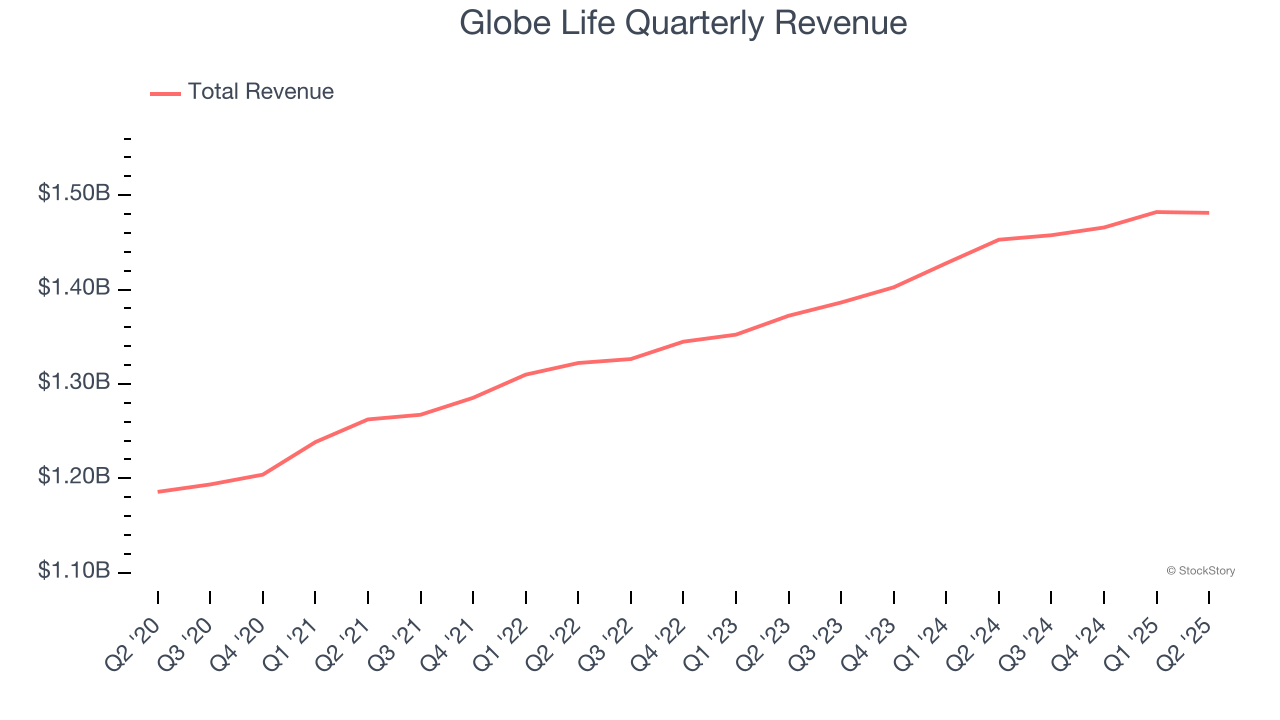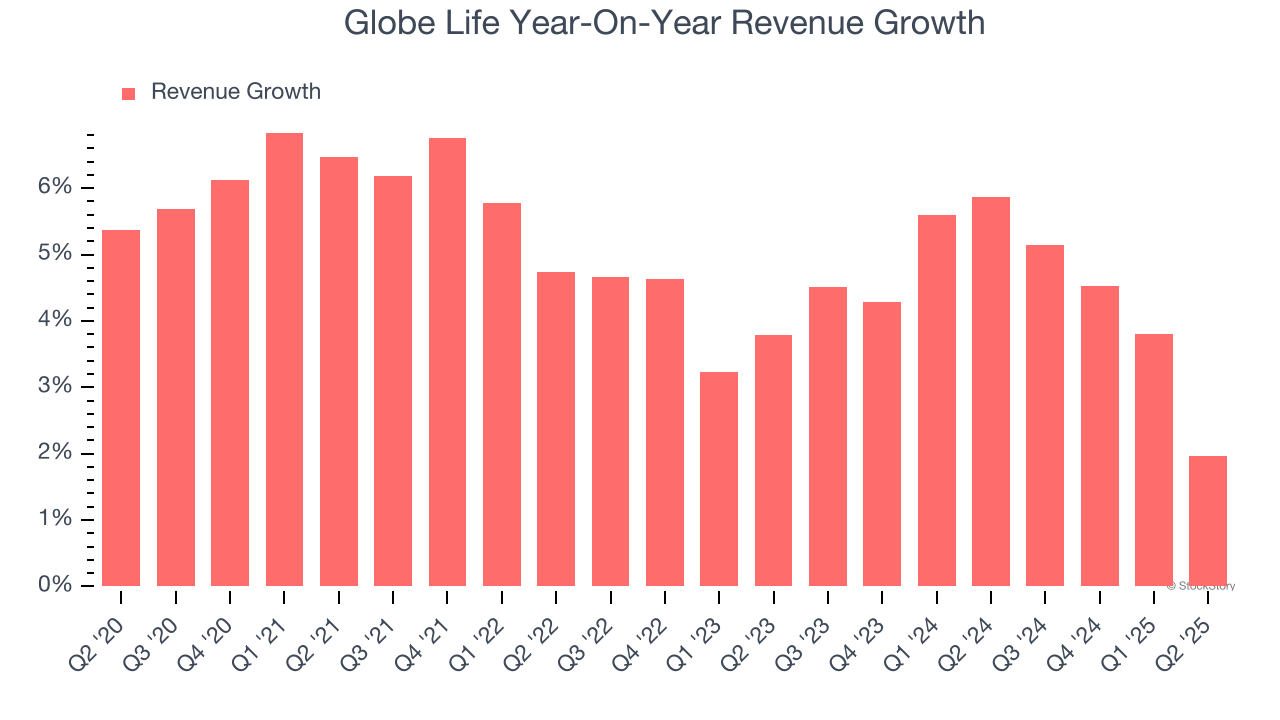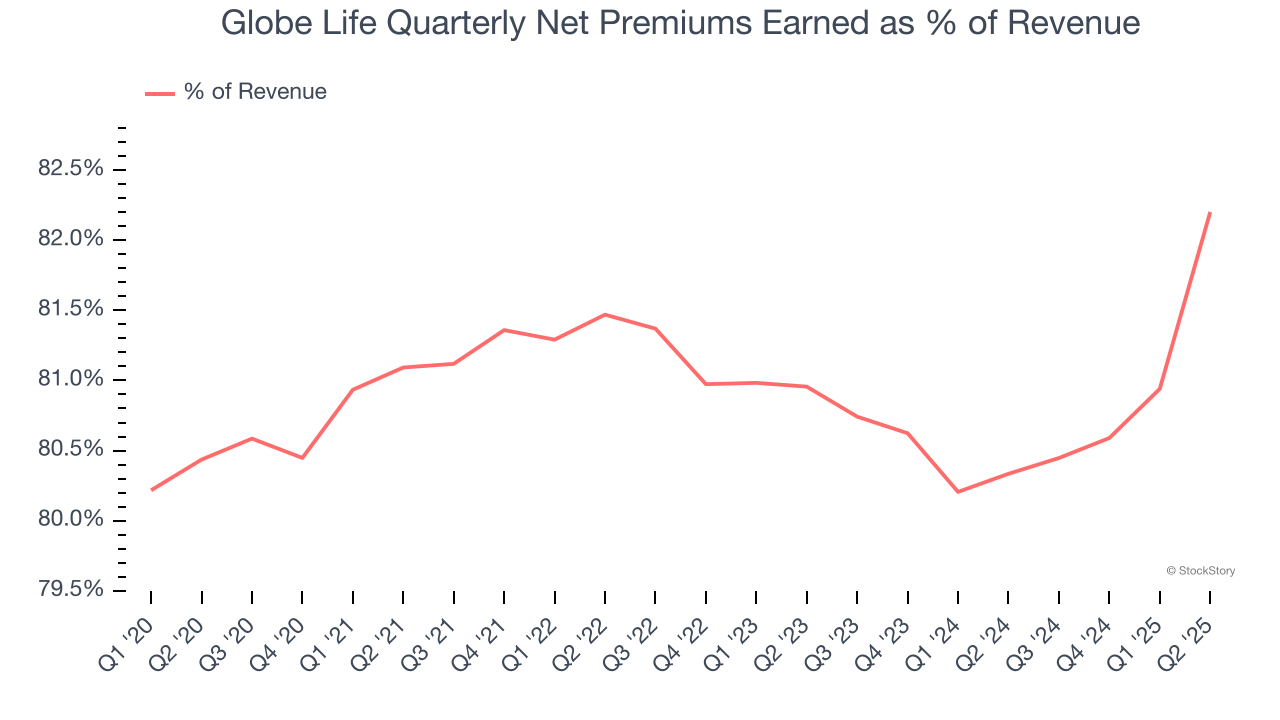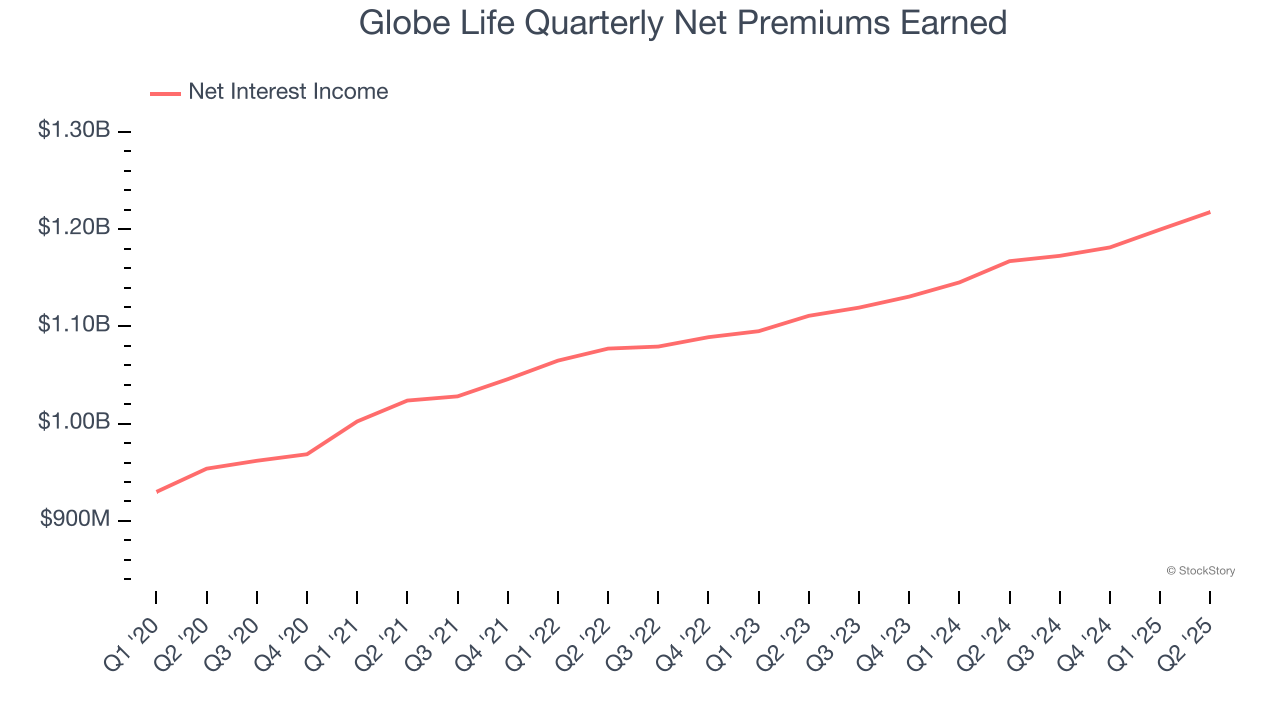
Insurance holding company Globe Life (NYSE:GL) missed Wall Street’s revenue expectations in Q2 CY2025 as sales only rose 2% year on year to $1.48 billion. Its GAAP profit of $3.05 per share was 4.6% below analysts’ consensus estimates.
Is now the time to buy Globe Life? Find out by accessing our full research report, it’s free.
Globe Life (GL) Q2 CY2025 Highlights:
- Net Premiums Earned: $1.22 billion vs analyst estimates of $1.22 billion (4.3% year-on-year growth, in line)
- Revenue: $1.48 billion vs analyst estimates of $1.51 billion (2% year-on-year growth, 1.7% miss)
- Pre-Tax Profit Margin: 21.2% (1 percentage point year-on-year decrease)
- EPS (GAAP): $3.05 vs analyst expectations of $3.20 (4.6% miss)
- Market Capitalization: $10.14 billion
Company Overview
With roots dating back to 1900 and a rebranding from Torchmark Corporation in 2019, Globe Life (NYSE:GL) is an insurance holding company that offers life insurance, supplemental health insurance, and annuity products through various distribution channels.
Revenue Growth
Big picture, insurers generate revenue from three key sources. The first is the core business of underwriting policies. The second source is income from investing the “float” (premiums collected upfront not yet paid out as claims) in assets such as fixed-income assets and equities. The third is fees from various sources such as policy administration, annuities, or other value-added services.
Unfortunately, Globe Life’s 5% annualized revenue growth over the last five years was tepid. This fell short of our benchmark for the insurance sector and is a tough starting point for our analysis.

Long-term growth is the most important, but within financials, a half-decade historical view may miss recent interest rate changes and market returns. Globe Life’s annualized revenue growth of 4.5% over the last two years aligns with its five-year trend, suggesting its demand was consistently weak. 
This quarter, Globe Life’s revenue grew by 2% year on year to $1.48 billion, falling short of Wall Street’s estimates.
Net premiums earned made up 80.9% of the company’s total revenue during the last five years, meaning Globe Life barely relies on non-insurance activities to drive its overall growth.

Markets consistently prioritize net premiums earned growth over investment and fee income, recognizing its superior quality as a core indicator of the company’s underwriting success and market penetration.
Today’s young investors won’t have read the timeless lessons in Gorilla Game: Picking Winners In High Technology because it was written more than 20 years ago when Microsoft and Apple were first establishing their supremacy. But if we apply the same principles, then enterprise software stocks leveraging their own generative AI capabilities may well be the Gorillas of the future. So, in that spirit, we are excited to present our Special Free Report on a profitable, fast-growing enterprise software stock that is already riding the automation wave and looking to catch the generative AI next.
Net Premiums Earned
When insurers sell policies, they protect themselves from extremely large losses or an outsized accumulation of losses with reinsurance (insurance for insurance companies). Net premiums earned are therefore gross premiums less what’s ceded to reinsurers as a risk mitigation and transfer strategy.
Globe Life’s net premiums earned has grown at a 5.1% annualized rate over the last five years, worse than the broader insurance industry and in line with its total revenue.
When analyzing Globe Life’s net premiums earned over the last two years, we can paint a similar picture as it recorded an annual growth rate of 4.4%. This performance was similar to its total revenue.

Globe Life’s net premiums earned came in at $1.22 billion this quarter, up 4.3% year on year and in line with Wall Street Consensus estimates.
Key Takeaways from Globe Life’s Q2 Results
We struggled to find many positives in these results. Its EPS missed and its revenue fell short of Wall Street’s estimates despite in-line net premiums earned. Overall, this quarter could have been better. The stock remained flat at $124.81 immediately following the results.
Globe Life may have had a tough quarter, but does that actually create an opportunity to invest right now? When making that decision, it’s important to consider its valuation, business qualities, as well as what has happened in the latest quarter. We cover that in our actionable full research report which you can read here, it’s free.
